Emergency HVAC Repair – Atlanta, GA
Top 5 Reasons for After-Hours HVAC Calls and How to Avoid Them
After-hours HVAC repair calls are common for homeowners and businesses alike. Emergencies often seem to happen at the worst times—during nights, weekends, or holidays. Here are the top five reasons for after-hours HVAC calls and some tips on preventing them, helping you avoid stress and extra costs.
1. Thermostat Malfunctions
Thermostats that malfunction can leave your home uncomfortably hot or cold when least expected. Whether it’s due to incorrect settings, low battery power, or technical faults, a faulty thermostat can lead to unexpected shutdowns or overheating issues that require immediate attention.
How to Avoid It: Regularly check your thermostat settings and replace the batteries as needed. Upgrading to a programmable or smart thermostat can help prevent these issues by providing consistent monitoring and control. Annual thermostat inspections as part of routine heating and air conditioning repair near me services can also help you catch potential issues early.
2. Refrigerant Leaks
Refrigerant leaks can result in an HVAC system that no longer cools properly, often leading to discomfort, especially in warm months. These leaks can strain your AC unit and cause damage to compressors if not addressed quickly. Left unchecked, refrigerant leaks can also become more costly to repair.
How to Avoid It: Schedule regular HVAC repair services to have your system checked for refrigerant levels. Professional maintenance can help identify and fix leaks before they worsen, keeping your system running efficiently and avoiding costly after-hours calls.
3. Frozen Evaporator Coils
Evaporator coils can freeze due to blocked airflow, low refrigerant, or dirty filters. When coils freeze, your system may struggle to provide adequate cooling, leading to discomfort and, often, emergency repair calls when things get unbearable.
How to Avoid It: Prevent frozen coils by changing or cleaning your air filters monthly and ensuring vents are open and unobstructed. Regular maintenance checks can help detect airflow issues early and keep your evaporator coils in good condition. Contact heating and air conditioning repair near me for seasonal checkups that keep your system in top shape year-round.
4. Clogged or Dirty Filters
A common cause of after-hours HVAC issues is clogged or dirty filters, which can cause reduced airflow and overheating. If filters are neglected, it can eventually lead to system breakdowns, as the unit has to work harder than necessary to maintain airflow, stressing components and causing sudden failures.
How to Avoid It: Changing air filters regularly, ideally every 1-3 months depending on usage, can prevent many airflow-related problems. Dirty filters also reduce indoor air quality, so replacing them not only extends your system’s life but also ensures a healthier living environment. You can include filter replacements as part of your routine HVAC repair services to ensure consistency.
5. Electrical Issues
Electrical components, such as capacitors, breakers, and wiring, can fail unexpectedly, causing HVAC systems to stop working altogether. Electrical problems are among the most common reasons for after-hours calls because they can lead to sudden, complete system shutdowns.
How to Avoid It: Regularly scheduled maintenance can identify electrical components that are showing signs of wear or failure. When booking heating and air conditioning repair near me, ask your technician to inspect all electrical connections, test capacitors, and assess the condition of wiring to prevent unexpected electrical failures.
Final Thoughts
While after-hours HVAC calls may seem unavoidable, proper maintenance can go a long way in preventing these common issues. Scheduling routine HVAC repair services helps to catch problems early, allowing technicians to address them before they become emergencies.
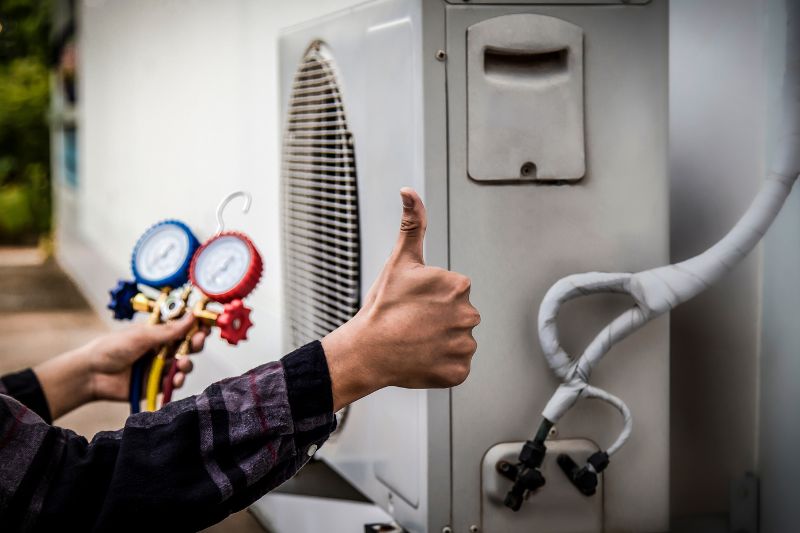
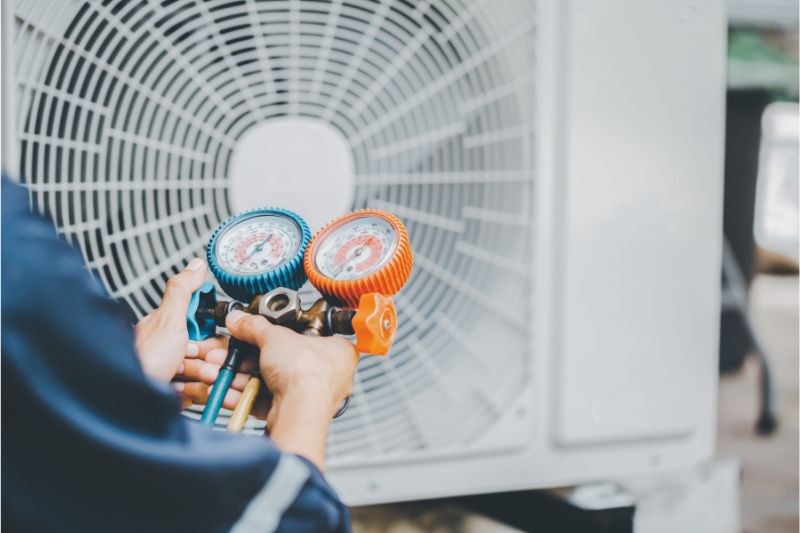
Got Questions? Call Now To Get Answers
Common Myths About Emergency HVAC Repairs and Why Quick Action Matters
When it comes to HVAC systems, emergency repair needs can come at inconvenient times, often resulting in calls for 24/7 HVAC repair. However, several common myths can cause delays in taking the necessary action, leading to even more damage and costly repairs. Let’s debunk some of these myths and explore why taking quick action is essential to prevent bigger issues and maintain comfort in your space.
Myth 1: I Can Ignore Small Problems Until Regular Service Hours
Some people think small issues—like unusual noises or slight drops in performance—are no big deal and can wait until regular service hours. In reality, minor HVAC problems can quickly escalate, leading to full system breakdowns that require more extensive and costly repairs. For instance, a minor refrigerant leak left unattended can strain the compressor, leading to a significant repair or replacement cost.
Why Quick Action Matters: Taking advantage of heating repair services at the first sign of trouble, even outside regular hours, helps prevent these issues from snowballing into emergencies. Addressing issues quickly helps keep your system running optimally, saving money and avoiding stressful breakdowns.
Myth 2: Emergency HVAC Repairs Are Always Overpriced
Many homeowners and business owners hesitate to call for emergency repair because they assume these services are always prohibitively expensive. While it’s true that after-hours services may have added costs, the expenses related to delayed repairs often far exceed those of immediate intervention.
Why Quick Action Matters: Waiting to schedule repairs during regular hours can sometimes lead to more damage, which may be more expensive to fix than calling for 24/7 HVAC repair right away. Acting promptly minimizes further damage and extends the life of your HVAC system, often offsetting any extra fees associated with emergency service.
Myth 3: I Can Fix the Problem Myself
With the rise of DIY tutorials, many people think they can resolve HVAC issues on their own. However, HVAC systems are complex and require specific knowledge and tools to fix safely and effectively. Attempting DIY repairs can not only be dangerous but can also void warranties or lead to unintentional damage that requires even more extensive repairs later.
Why Quick Action Matters: Calling a professional for heating repair services is the safest and most effective way to ensure your HVAC system is fixed correctly. Licensed technicians can quickly diagnose and repair issues with minimal risk, allowing you to avoid hazardous DIY attempts and costly mistakes.
Myth 4: Emergency Repairs Mean My HVAC System Is On Its Last Legs
Some people assume that if their system requires an emergency repair, it’s a sign that the HVAC system is nearing the end of its lifespan. This isn’t always the case—many emergency repairs stem from minor issues like a clogged filter, thermostat issues, or electrical malfunctions that don’t indicate the overall health of the unit.
Why Quick Action Matters: Addressing even minor emergencies promptly through 24/7 HVAC repair can help restore your HVAC’s functionality without impacting its lifespan. With timely interventions, your HVAC system may continue to perform reliably for years, as long as regular maintenance is observed.
Myth 5: If the System Is Cooling or Heating, It’s Fine
One of the most common myths is that as long as the HVAC system is heating or cooling, there’s no need to worry. However, issues such as short cycling, odd noises, and temperature fluctuations are warning signs that something is wrong. Ignoring these can lead to breakdowns or more extensive repairs.
Why Quick Action Matters: Quick action at the first sign of trouble ensures that your HVAC system continues to perform at peak efficiency. By addressing minor issues early, you can often avoid significant repairs and keep your system running smoothly. Contacting heating repair services right away helps ensure that your HVAC continues to work effectively and efficiently without interruptions.
The Bottom Line: Quick Action Prevents Costly Consequences
Myths about emergency HVAC repairs can lead to costly delays and larger issues that are avoidable with timely intervention. When it comes to HVAC systems, acting quickly is always a smart choice to keep your system reliable and your indoor space comfortable. If you’re noticing early signs of trouble, calling a 24/7 HVAC repair service can save you time, money, and stress by addressing issues before they escalate.
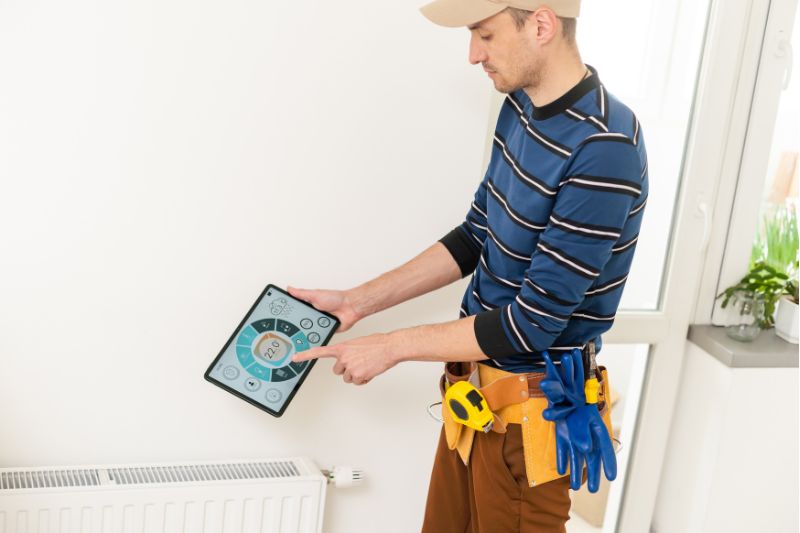

Got Questions? Call Now To Get Answers
Preventing Winter HVAC Emergencies: Maintenance Tips to Prepare for the Cold
As the winter months approach, ensuring your HVAC system is prepared for the colder weather is crucial to avoid unexpected breakdowns and costly emergency repairs. Winter HVAC emergencies can be stressful, especially when your heating system fails in the middle of a cold night. However, with proper maintenance and early preparation, you can minimize the risk of emergency issues and keep your home warm and comfortable throughout the season. Here’s a guide to preparing your HVAC system for winter, while also touching on the importance of AC repair and maintenance in keeping your system in peak condition year-round.
1. Schedule a Pre-Winter HVAC Tune-Up
One of the best ways to prepare your HVAC system for winter is to have a professional tune-up performed. This includes checking the heating components, cleaning filters, inspecting thermostats, and ensuring that your system is running efficiently. A well-maintained HVAC system is less likely to experience unexpected failures during peak heating times.
Why It Matters: Annual tune-ups help identify potential issues before they become emergencies, ensuring that your heating system performs optimally when you need it most. Regular maintenance is also an essential part of keeping your air conditioning system in good shape, as a well-maintained AC unit will function more efficiently, reducing the need for repairs.
2. Change or Clean Air Filters
Dirty air filters are one of the most common causes of HVAC system issues, particularly in the winter months when your system is working harder to keep your home warm. Clogged filters restrict airflow, forcing your system to work harder and potentially causing overheating or failure.
Why It Matters: Regularly replacing or cleaning your air filters ensures proper airflow, improves indoor air quality, and allows your system to run efficiently. Whether it’s for heating or AC repair and maintenance, maintaining clean filters year-round is crucial to preventing breakdowns and improving system performance.
3. Inspect and Clean Ductwork
Over time, ducts can accumulate dust, debris, and even mold. Clogged or dirty ducts not only hinder your HVAC system’s efficiency but can also lead to poor air quality and system stress. Before winter hits, it’s essential to have your ducts inspected and cleaned if necessary.
Why It Matters: Clean ducts ensure proper airflow and even heating throughout your home. Keeping your ducts in good condition can also improve the efficiency of your air conditioning system, as blocked ducts can cause uneven cooling during the warmer months as well. Regular maintenance, including duct cleaning, will help prevent heating and cooling emergencies all year long.
4. Check and Insulate the Pipes
In colder climates, frozen pipes can be a major issue. Ensure that all exposed pipes are properly insulated, especially those near windows, doors, or in unheated spaces. This will prevent them from freezing and potentially bursting, which can lead to costly repairs and a lack of heat.
Why It Matters: Insulating your pipes not only prevents water damage but also helps your HVAC system operate more efficiently, as the system won’t have to work as hard to compensate for a loss of heat in the home. It’s important to address this before the cold sets in to avoid unnecessary heating emergencies.
5. Ensure Proper Thermostat Function
A malfunctioning thermostat can cause your HVAC system to run inefficiently, leading to inconsistent temperatures, energy waste, or even a total system failure. Before winter, have your thermostat tested to ensure it is working properly and accurately.
Why It Matters: If your thermostat is not reading temperatures correctly, it can cause your heating system to overheat or underperform. This is not only uncomfortable but can also lead to emergency heating issues. Maintaining your thermostat is also essential for your AC repair and maintenance efforts, as it ensures that your system functions properly during both heating and cooling seasons.
6. Seal Gaps and Insulate Windows and Doors
Cold air can enter your home through cracks and gaps around windows, doors, and even electrical outlets. Proper insulation and sealing of gaps can prevent cold drafts, making your heating system work more efficiently. This can help reduce the strain on your HVAC system during the cold months.
Why It Matters: Sealing your home’s perimeter not only keeps warm air inside but also improves the overall performance of your HVAC system. A well-insulated home allows your heating system to run at its best, reducing the risk of an emergency system failure. Additionally, proper insulation can make a noticeable difference when the weather warms up, helping to optimize your AC unit’s performance as well.
7. Consider Upgrading Your System
If your HVAC system is aging and frequently requires repairs, it may be time to consider an upgrade. Newer systems are generally more energy-efficient, reliable, and capable of handling the demands of both heating and cooling with less wear and tear.
Why It Matters: An upgrade can help prevent frequent repairs and increase energy savings, ensuring that your system operates without interruptions year-round. A modern HVAC unit will not only help prevent winter heating emergencies but also make your air conditioning more efficient during the warmer months, reducing the need for AC repair and maintenance.
Final Thoughts
Preventing winter HVAC emergencies is all about preparation. By taking the time to properly maintain your system before the cold weather arrives, you can avoid unexpected breakdowns and costly repairs. Regular maintenance for both heating and air conditioning ensures that your system runs smoothly year-round, keeping your home comfortable no matter the season. Whether it’s scheduling a tune-up, replacing filters, or sealing gaps, these simple steps can help you stay ahead of potential problems and enjoy peace of mind throughout the winter.
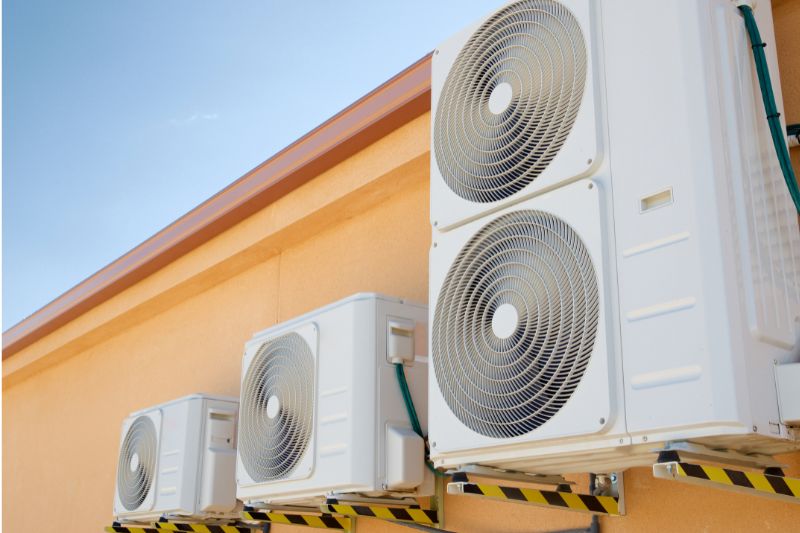
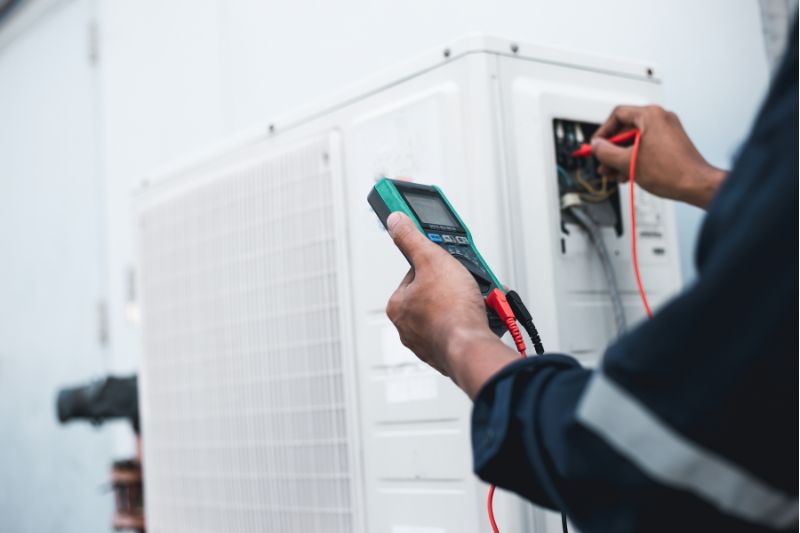
Got Questions? Call Now To Get Answers
Cost vs. Comfort: How to Budget for Unexpected HVAC Repairs
When it comes to maintaining a comfortable home, your HVAC system plays a crucial role. Whether it’s heating your home in the winter or cooling it in the summer, this system is essential to your comfort. However, like any mechanical system, HVAC units are prone to wear and tear and may require unexpected repairs. This raises an important question: how do you budget for these inevitable costs without sacrificing comfort?
Balancing the costs of heating repair services and AC repair and maintenance with the need to keep your home comfortable can be tricky. Here’s how you can budget wisely for HVAC repairs, ensuring you’re prepared for the unexpected without breaking the bank.
1. Understand the True Cost of HVAC Repairs
The first step in budgeting for HVAC repairs is understanding what they might cost. Repair costs can vary depending on the issue, the age of the system, and the complexity of the problem. For example, minor issues like replacing a clogged filter or fixing a thermostat can be relatively inexpensive, whereas more complex problems such as compressor failures or refrigerant leaks can cost hundreds of dollars.
Why It Matters: Knowing the range of potential costs helps you anticipate and prepare for the worst-case scenario. You don’t want to be caught off guard by a high repair bill, so having a general idea of what different repairs might cost allows you to make informed decisions when the time comes.
2. Create a Maintenance Plan to Prevent Costly Repairs
The best way to avoid costly HVAC repairs is through regular maintenance. Scheduling AC repair and maintenance at least once a year (for cooling) and once during the heating season can help catch issues before they become major problems. Replacing filters, cleaning ducts, and inspecting the system can extend its lifespan and reduce the likelihood of unexpected breakdowns.
Why It Matters: Regular maintenance helps keep your system running smoothly, reducing the risk of large, unplanned repairs. Investing in maintenance today can save you a significant amount in repairs and replacements down the road. It’s an essential part of budgeting for HVAC repairs because it prevents expensive issues from arising.
3. Set Aside an Emergency HVAC Fund
One of the most effective ways to budget for unexpected HVAC repairs is to create an emergency fund specifically for these situations. By setting aside a small portion of your monthly income, you’ll have the funds available when an HVAC emergency occurs. Ideally, your emergency fund should cover the cost of common repairs, including both heating repair services and AC repair and maintenance, for when things break down unexpectedly.
Why It Matters: An emergency HVAC fund gives you peace of mind knowing that you won’t have to scramble for money when a breakdown occurs. Having a financial cushion also allows you to act quickly, ensuring that you can get your system repaired and your home comfortable again without unnecessary delays.
4. Consider a Service Plan or Warranty
Many HVAC companies offer service plans or extended warranties that cover the cost of repairs for a set period. These plans typically include annual inspections and priority service, along with discounted repair costs. While there may be an upfront cost for the plan, it can save you money in the long run, especially if your system requires repairs during off-hours or peak seasons.
Why It Matters: Service plans and warranties offer predictable monthly or yearly costs, which can be easier to budget for compared to unexpected repair bills. With a plan in place, you can rest easy knowing that major HVAC issues are covered, which helps prevent sudden financial strain.
5. Know When to Replace vs. Repair
Sometimes, it’s more cost-effective to replace your HVAC system rather than continually repairing it, especially if your system is old and inefficient. If your system is nearing the end of its lifespan, frequent repairs may only delay the inevitable replacement. In this case, it may make sense to save for a new unit rather than continuously fixing an outdated one.
Why It Matters: While HVAC replacements are costly, they can often provide long-term savings on energy bills and reduce repair expenses. Before committing to costly repairs, weigh the cost of continuing maintenance versus investing in a new system that offers improved efficiency and fewer repair needs.
6. Prioritize Comfort vs. Cost
When an HVAC emergency strikes, you may be faced with a difficult decision: Do you opt for the most cost-effective repair, or do you prioritize comfort and opt for a more comprehensive solution? If you have a good HVAC emergency fund, it’s easier to balance both factors. For example, if your heating system is failing in the middle of winter, it might be more important to invest in a higher-quality repair that will last longer, even if it costs more in the short term.
Why It Matters: Comfort should always be a top priority, especially when the weather is extreme. However, by budgeting ahead of time, you can find ways to strike a balance between the cost of repairs and maintaining a comfortable environment in your home.
7. Shop Around for Competitive Pricing
When unexpected repairs arise, it’s essential to get multiple quotes from heating repair services or HVAC companies. Prices can vary depending on the company, location, and the type of service needed. By comparing quotes, you can make sure you’re getting the best deal without sacrificing quality or reliability.
Why It Matters: Shopping around for competitive pricing ensures that you’re not overpaying for repairs. This allows you to make repairs more affordable while still receiving high-quality service. When it comes to HVAC systems, it’s important to find the right balance of cost and comfort, and getting multiple quotes is one way to achieve that.
Conclusion: Balancing Cost and Comfort
Unexpected HVAC repairs are a fact of life for homeowners, but that doesn’t mean they should come as a financial shock. By understanding potential repair costs, setting up a maintenance plan, and establishing an emergency fund, you can reduce the impact of these repairs on your budget. Service plans and warranties can provide peace of mind, and knowing when to replace your system can save you money in the long run. In the end, it’s all about balancing comfort with cost—and being prepared for when HVAC emergencies strike.
Got Questions? Call Now To Get Answers
Reach Us
Heating and Air Conditioning Repair – Atlanta, GA
Hours of Operation
Mon Open 24 hours
Tue Open 24 hours
Wed Open 24 hours
Thu Open 24 hours
Fri Open 24 hours
